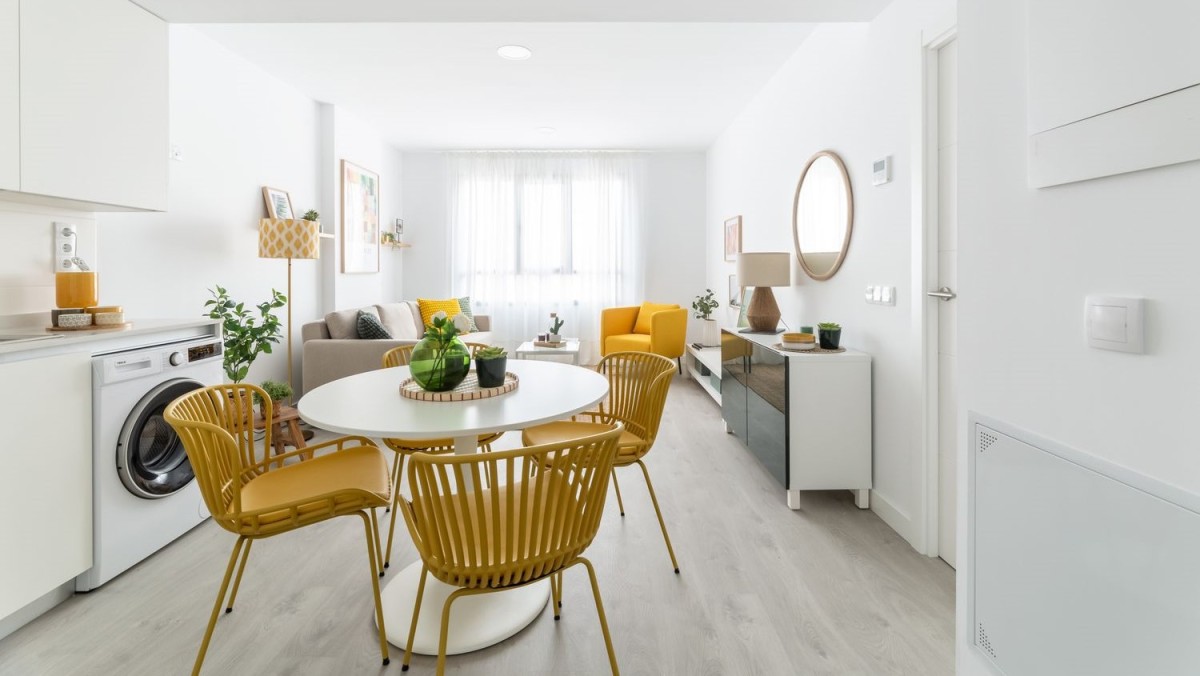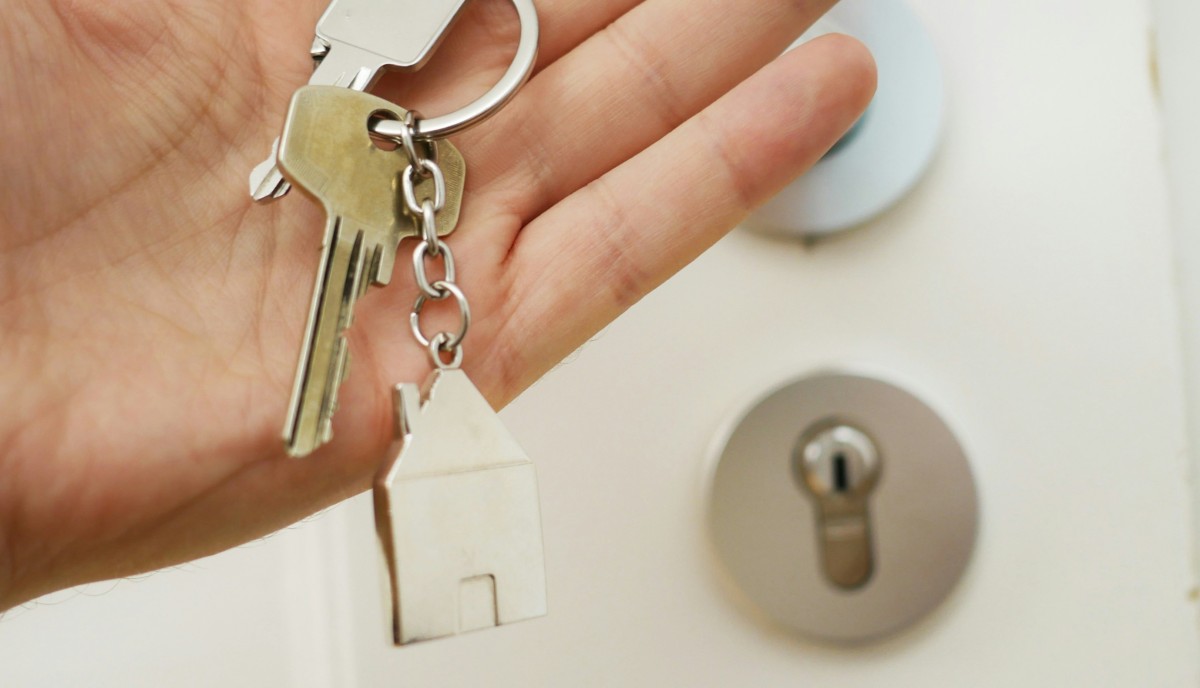
Discover essential advice for securing your ideal apartment in Spain, from understanding legal requirements to navigating the rental market and avoiding common pitfalls. Whether you're looking to rent in bustling cities or tranquil rural areas, knowing the nuances of the Spanish rental market can significantly enhance your renting experience.
Understanding the Rental Market in Spain
Learn about the diverse range of properties available in Spain and how regional differences affect rental prices.By familiarising yourself you can better align your housing needs, with your lifestyle preferences and budget.
- Type of property: When considering renting an apartment in Spain, it's crucial to understand the variety of properties available. The market offers everything from modern apartments in high-rise buildings to charming villas and traditional townhouses. Each comes with its own set of considerations such as price, space, and amenities. In terms of location, urban homes typically feature more compact living spaces but are located closer to office sectors in the city, education centres, and entertainment; while rural properties might offer more space but require longer commutes.
- Location: Rental prices in Spain are influenced by proximity to the city centre, public transportation links, and local amenities. Properties outside city centres are generally more affordable but may add to daily commute times, and metropolitan areas like Madrid and Barcelona generally offering higher rental prices compared to smaller towns and rural areas.
- Floor level: of an home can impact rental costs, with higher floors often commanding a premium, especially if they provide better views or reduced street noise.
Essential Documents and Requirements
Before you embark on your apartment hunt in Spain, it's vital to gather all necessary documents, translated into Spanish, to ensure a smooth rental process. Ensuring you have all the following ready can significantly speed up your ability to secure your desired apartment.
NIE (Número de Identificación de Extranjero), which is a must-have for any foreigner engaging in legal transactions in Spain, including renting an apartment.
Valid passport
Proof of income, which landlords typically require to verify your financial stability.
Work contract or enrolment documents if you are a student
References from previous landlords, possibly.

Navigating Legalities and Contracts
Understanding the intricacies of Spanish rental contracts is crucial for a secure tenancy. Rental agreements in Spain can vary, but they generally fall into two categories:
- Short-term (usually up to one year) and long-term contracts. Knowing the type of contract and the obligations it entails can protect you from potential disputes. Take a look at our Sample Rental contract PDF or Room Rental Contract in PDF as examples.
- Spanish law tends to favour tenants' rights, so it's important to know your entitlements, such as the right to a habitable living environment and privacy. Landlords must provide a contract that complies with the law, so ensure you read and understand every aspect of the contract before signing. If necessary, seek legal advice. It's also beneficial to familiarise yourself with the process of deposit returns, contract termination, and notice periods to avoid any legal pitfalls during your tenancy.
Finding Your Ideal Apartment
Finding the right apartment in Spain can be a delightful yet daunting task, especially if you're unfamiliar with the local market. To navigate this, focusing on location, property inspection, and the use of trusted property search platforms like Idealista can streamline the process and help you find a place that feels like home.
- Choose the right location: Whether you prefer the bustling city centre or a quieter suburb, understanding the character and conveniences of different areas can greatly influence your living experience. It essentially means one must consider factors such as proximity to public transport, local amenities, safety, and the general lifestyle of the neighbourhood. This is paramount in terms of where the rental is and that region's cost of living. If you're part of the LGBTQIA+ community, ask yourself if you feel safe and welcomed in the area.
- Visit all potential apartments: Do this either in person or virtually, so the home can give you a better feel for the amount of space available and its accessibility getting to and from vital amenity locations. Inspecting properties thoroughly before making any decisions is crucial, so you can catch signs of damp, check the functionality of appliances, and ensure the property is well-maintained. Asking about typical utility costs can also prevent surprises later on.

Avoiding Rental Scams
The excitement of finding a new apartment can sometimes be overshadowed by the risk of rental scams, which are unfortunately all too common in the Spanish rental market. Protecting yourself from these scams starts with knowing what to look out for and how to verify the legitimacy of a property listing. Stay vigilant and informed.
- Verify the identity of the landlord or agent before proceeding with any transactions. This can involve checking their credentials and ensuring they have legitimate authority to rent out the property. Be wary of deals that seem too good to be true, such as extremely low rents for luxurious properties. Such offers often lure unsuspecting renters into scams. Here is a list of useful Spanish phrases to use if when discussing the rental.
- Use secure payment methods so you can be protected from financial fraud. It's advisable to never pay a deposit or any rent before signing a contract and physically verifying the property's existence and condition. Always insist on a written contract that clearly outlines the terms of your tenancy, including rent, deposit details, and your rights as a tenant. If possible, seek legal advice to review the contract before you sign it to ensure all terms are fair and legal.
Practical Tips for Renters
Embarking on a rental journey in Spain requires not only finding the right place, but also managing your budget effectively and understanding the additional costs involved.
- Rental costs: understand what's typical in various parts of the country and the price evolution of housing for rent in Spain. While cities like Madrid and Barcelona may have higher rental prices, exploring areas just outside the city center can offer more affordable options without significantly increasing commute times. Budgeting for rent should ideally not exceed 30-35% of your monthly income, which is a standard guideline to maintain financial health.
- Utility cost distribution: In Spain prices vary depending on the location and the efficiency of the building. It's important to ask about the average utility costs from previous tenants or the landlord to avoid unexpected expenses. Typically, landlord pays the IBI property tax and tenant the utilities including electricity, water, gas, and sometimes community charges if you're living in an apartment complex with shared services like cleaning and maintenance of common areas.
- Cost of internet and telecommunications: Spain offers various providers, so it's advisable to shop around for the best deals that suit your needs. Some landlords might include internet as part of the rental agreement, which can save you the hassle of setting it up yourself.
- Renters' insurance: Don't forget to include a provision for this in your rental expenses. While not mandatory, it provides peace of mind by protecting your belongings from theft or damage and can also cover liability in case someone is injured in your rented home. For instance, tourism accommodation has a special licence.
- Contingency fund: This is for unexpected costs such as emergency repairs that are not covered by the landlord, or possible increases in rental or utility costs. Being financially prepared will ensure that these surprises do not disrupt your living situation.

By taking these practical steps, you can manage your finances effectively while enjoying your new home in Spain. Remember, a well-planned budget leads to a more comfortable and stress-free living environment.
If your thinking of using an agent when looking for your home, take a look at our agency search tool. Search our database for long-term rentals, holiday rentals or rooms for rent in shared flats in Spain available right now. But if you end up loving Spain like we do, if you decide to stay, here's where you can search for your permanent residence with property for sale in Spain. Our expertise and local knowledge can help you navigate the market and find the perfect property that meets your needs and exceeds your expectations.